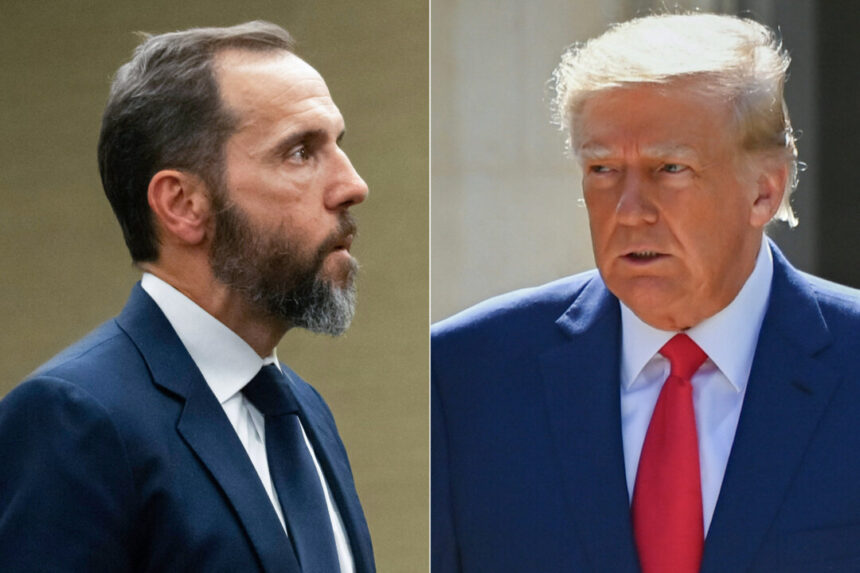During a recent U.S. Supreme Court hearing, Justice Clarence Thomas inquired about the challenge to special counsel Jack Smith’s authority to bring charges against former President Donald Trump. Trump’s lawyer pointed out that Mr. Smith was never nominated by the president or confirmed by the Senate at any time.
The hearing, held on April 25, focused on President Trump’s immunity from prosecution for official acts carried out during his presidency. Justice Thomas asked Trump’s attorney if they challenged the appointment of the special counsel, Mr. Smith, who was appointed by Attorney General Merrick Garland.
While Trump’s lawyer acknowledged that they did not raise concerns directly in the current case at the Supreme Court, he highlighted the issue of prosecutorial power being exercised by someone who was never officially appointed or confirmed by the Senate.
Attorney General Garland appointed Mr. Smith as Special Counsel of the U.S. Department of Justice, citing various statutes. However, two former attorneys general argued in a brief submitted to the Supreme Court that Smith’s appointment was unlawful and that he did not have the authority to conduct the prosecution against Trump.
The Supreme Court is considering Trump’s immunity case, which alleges an attempt to subvert the transfer of presidential power following the 2020 election. Trump is charged with four criminal counts in the case.
Trump had requested lower courts to support his claims of presidential immunity, but after they refused, he appealed to the Supreme Court. The Court will decide the extent to which a former president enjoys immunity from criminal prosecution for actions taken during their tenure.
Trump’s lawyer warned against undermining presidential immunity, stating that prosecuting a president for official acts could have far-reaching implications and distort decision-making by future presidents. The lack of immunity could also make presidents vulnerable to extortion by political rivals.
The Supreme Court justices appeared skeptical of Trump’s absolute immunity claims but seemed open to the idea of some level of presidential immunity. The court may choose to remand the case back to the district court for further proceedings to differentiate between official and private acts of the president.
Please provide an alternative version.
Source link






